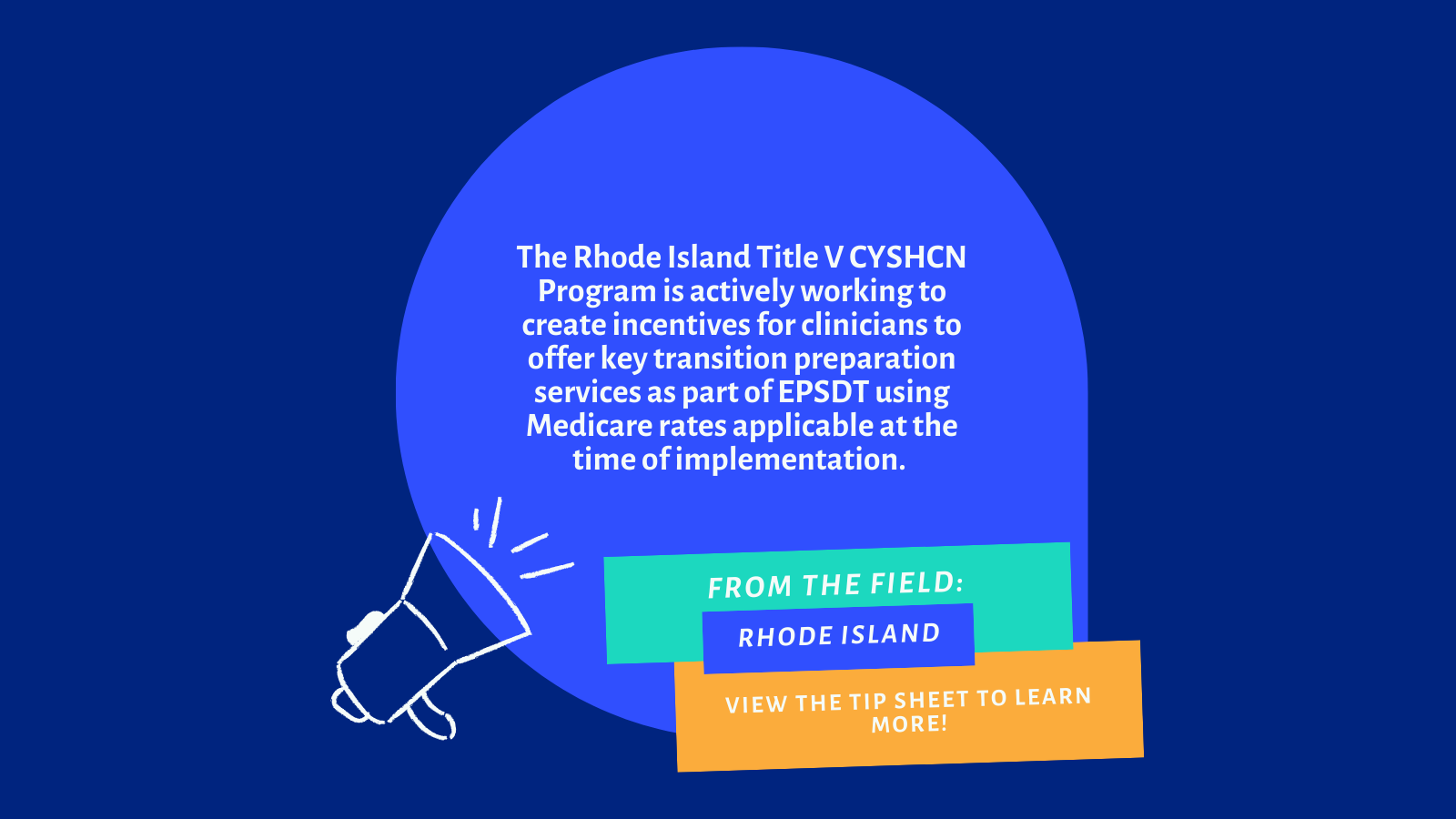RI Advances Transition Care for Adolescents and Young Adults moving from Pediatric to Adult Care
 Rhode Island ‘s Work on Advancing Health Care Transition for Youth with Special Health Care Needs is highlighted in the National Center for a System of Services for Children and Youth with Special Health Care Needs Impact Report, which documents how states are advancing systems of services for CYSHCN through policy, financing, and cross-sector partnerships.
Rhode Island ‘s Work on Advancing Health Care Transition for Youth with Special Health Care Needs is highlighted in the National Center for a System of Services for Children and Youth with Special Health Care Needs Impact Report, which documents how states are advancing systems of services for CYSHCN through policy, financing, and cross-sector partnerships.
As part of the National Learning Collaborative led by the National Center for a System of Services for Children and Youth with Special Health Care Needs (CYSHCN), Rhode Island, under the leadership of the Rhode Island Department of Health and Executive Office of Health and Human Resources (EOHHS), has made important progress in improving the system of care for young people transitioning from pediatric to adult health care.
Through this effort, Rhode Island has designed new payment strategies under Medicaid’s Early and Periodic Screening, Diagnostic, and Treatment (EPSDT) benefit to support pediatric-to-adult transition services. Beginning July 1, 2025, Medicaid will reimburse clinicians for a core set of transition services, including:
- Transition readiness assessments
- Counseling and skill-building
- Preparation of medical summaries
- Joint telehealth visits with pediatric and adult providers
A critical strength is that these new codes and the transition process are designed to benefit all youth insured by Medicaid, not only those with special health care needs.
The National Alliance to Advance Adolescent Health/Got Transition has developed a Rhode Island-specific tip sheet resource:
- Paying For Health Care Transition Services Under Medicaid’s EPSDT Benefit: Rhode Island State Example
This effort builds on Rhode Island’s ongoing collaboration with the Title V CYSHCN Program, CTC-RI, the Rhode Island Parent Information Network, and support from Point 32 Health. CTC-RI will pilot the use of these transition codes with ten practice sites in early 2026.
For more examples of innovative state work, visit the National Center’s “From the Field” page:
